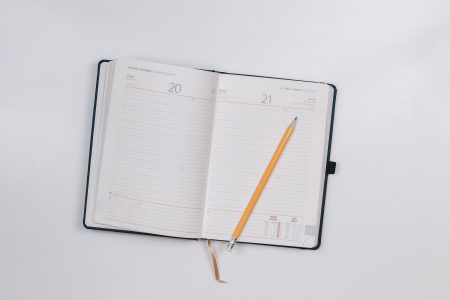ADHD Study Tips
Here are some ADHD study tips for students. With ADHD, studying for school can be a bit difficult. Sure, studying for school is no picnic in the park for anybody aiming for a high grade.
However, ADHD adds an additional layer of difficulty to the study process. With our short-term memory issues and distractibility, we can quickly lose track of where we were in the process or have to reread material because we lost focus during reading. However, there are ways that we can augment our process of studying to accommodate our ADHD traits and tendencies. Here are some ADHD study tips.
The first of the ADHD study tips that can augment our study process is to limit our focus time. We already know that we have limited focus. The fundamental issue with our limited focus and increased distractibility is that we don’t always know when we lost focus. This causes us to reread material and re-assess where we are in our studies. We don’t always have a clear picture of what we have already completed.
We can create shorter time blocks for studying that avoid overloading our short-term memory. Back in college, I used to limit my study blocks to 20 – 30 minutes. I tried never to exceed this time allotment.
Then, I would take a 10-minute break, where I would allow my mind to wander in whatever direction it wanted. I would consider this a cycle, 20 minutes focus, 10 minutes off. With less focus required per cycle, I could repeat this cycle several times. Sometimes, after several cycles, I would take a more extended break of maybe 20 -30 minutes.
It may seem that reducing your study time into smaller blocks with more breaks would be counterintuitive to maximizing productivity. However, these ADHD study tips increase your productivity because each time block of focus is more efficient for our ADHD brains. As a result, we don’t overload our short-term memory or risk losing too much focus. If I had studied past the 20 -30 minute time allotment, I likely wasn’t very focused. With the longer study times and increased risk of losing focus, the extra study time past the allotment was wasted.
The next ADHD study tip to increase the effectiveness of our study time is to take notes frequently. Again, specific to ADHD, we should take notes that indicate where we are in our planned study process. For example, if we are reading independent articles for research, we should occasionally take notes of which articles we have read and any thoughts. It’s also essential to note what we identified while reading our research material.
The point of these detailed notes is to save us from having to backtrack when we lose focus. Furthermore, with the detailed notes, if we lose focus, we have a record of where we were in the study process. This saves us time in retracing our steps or rereading too much material.
As an example of this ADHD study tip, spend 20 minutes identifying articles that relate to a research topic. Then note which article you were reading, and then take a 10-minute break. After the break, pick up where you had previously stopped. Using your notes of what you were thinking and where you needed extra attention, you can more efficiently pick up where you had previously stopped.
The key in this process is short 20 minutes sections, with detailed notes of your thoughts and progress with learning the material. Then, when you need to stop studying for the night, you have a road map of exactly where you were in the process.
With ADHD in college, this was my way of giving myself milestones when researching. For example, if I lost focus at any point and had to stop studying for the night, I didn’t have to worry about losing my place in my research. Instead, I would use my notes to tell me exactly where to pick up my research the next day. By doing this extra step, I was able to limit how much research I had to repeat. This ADHD study tip saved me from a lot of headaches.
The other key in using short 20-minute focus sessions is that you don’t overwhelm yourself with information. With ADHD, it is very easy to overwhelm yourself with information and lose track or forget what you are doing. This is related to our hindered cognitive executive functions in our prefrontal cortex.
For you, the optimal time may not be 20 minutes. ADHD affects us all differently, and you may need to increase or decrease your optimal focus time. For me, after many nights of frustration when studying, I found my optimal study time of 20 minutes. If I stuck to 20 minutes with a good 5–10 minute break, I could sustain this cycle for a few hours. Hopefully, these ADHD study tips can help you as well.
Check out my article on the Apple Watch for ADHD. There are some perfect apps to help follow these ADHD study tips.
ADHD Study Tips
This post may contain affiliate links that earn us a commission when you buy through our product links. For our full disclosure, please visit our Privacy Policy page.







